COMP 110 - Digital Graphic Design I
This comprehensive course is designed to take students from the very beginning of their Photoshop journey and gradually build their skills in this powerful design software. Participants will get familiar with the software interface and they will learn Photoshop's tools, panels, and functions, ultimately gaining the skills required to create projects from scratch.
DIGM 100 - Digital Marketing Essentials
In this foundational course, students will learn about digital marketing and how it has transformed brand marketing and customer relationships. Topics covered include website strategy, email marketing, and the basics of social media. This course is designed to introduce students to digital marketing principles and tools, and how to leverage these tools in order to engage customers and create business growth.
DIGM 120 - Social Media Marketing Essentials
This course provides an introduction to the most relevant social media platforms in the market, including Facebook, Instagram, TikTok, YouTube, Twitter, and Pinterest. Students learn how these platforms work, how to create effective strategies for them, and the secrets behind their algorithms. The course aims to equip students with the skills to create a comprehensive social media strategy, covering target audience selection, platform selection, organic content creation, and content scheduling.
BUS 141 - Marketing 1
Designed to provide the student with an overview of the marketing concept and how it can be applied to any type of organization or service. Students also learn how key marketing concepts, principles, and theories can help marketers make effective decisions. Specifically the knowledge and understanding which are needed to assess product, price, promotion and distribution options, and to make marketing mix recommendations for specific target markets.
PPD 100 - Success in the Classroom
This is a first semester course that provides students with the tools they need for academic success. The course offers skills to help students with the transition to post-secondary education, to help them learn how to be a successful student and to make the most of their learning experience.
PPD 150 - Success in the Workplace
This course focuses on preparing students for the Canadian workplace, either in their future career or the work-integrated learning component of their Canadian College program. Students will examine their own career goals as well as topics such as safety, time management, and critical thinking, in order to help them transition into and succeed within a Canadian work environment.
DIGM 230 - Content Marketing
This course seeks to bridge creativity, technology, and marketing, emphasizing the multifaceted nature of content marketing.
In this course, students will delve into the primary modes of content creation. They will also understand the strategies to augment website traffic and acquire new clientele. Key marketing concepts like inbound attraction, unique positioning, audience segmentation, leveraging social media, and the power of email communication will be addressed.
DIGM 260 - AI & Digital Marketing Strategy
This course aims to equip students with a professional understanding of artificial intelligence, focusing primarily on the ChatGPT language model and its application in digital marketing. Participants will gain insight into the foundational workings of ChatGPT, the principles and structures of effective prompts, and how to adeptly employ them to devise and implement robust strategies across various digital platforms.
COMP 270 - Introduction to Front-End Web Development
This course is designed to equip students with the essential tools and techniques for crafting websites tailored to diverse business model needs. The primary goal is to nurture students' abilities to develop interactive, captivating, and conversion-centered online platforms.
COMM 140 - Communications
This introductory communications course emphasizes the development of reading, writing, listening and speaking business communication skills at a college level. Students write for various purposes and audiences and deliver short presentations to small groups. Students research, analyze, summarize and document information. Students self and peer evaluate written documents and oral presentations. Through reading, media response and discussion exercises, students improve their communication skills. Communicating in diverse teams and across cultures is emphasized.
PPD 200 - Business Computers 1
This course is the first part of an introduction to the computer skills required in business today. It provides the student with an introduction to computer file management and Microsoft Word.
PPD 250 - Business Computers 2
This course will introduce and further develop Microsoft Excel skills that the student will need use in subsequent semesters and in the business world. Upon completion of the course, students will be able to prepare tables and graphs, use input fields, understand and be able to use Microsoft Excel insert functions and specialized functions. These functions include goal seeking, solver and data analysis.
DIGM 150 - Digital Marketing Analytics
This course introduces students to the foundation of data analysis in the digital marketing field. Students learn about the most effective metrics tools and how to identify Key Performance Indicators (KPIs) for various platforms such as websites, organic search, social media, and paid advertising. They also gain practical experience in creating customized reports using tools such as Meta Business Suite Insight, Google Analytics, and Semrush.
BUS 142 - Marketing 2
This course focuses on the marketing mix, a collection of variables that marketers control and manipulate in changing market conditions. Once marketing objectives have been developed, companies must decide on specific pricing, products/services, distribution and marketing communication strategies. Students study each of these four marketing mix variables in depth and in the context of a marketing plan.
ECOM 125 - e-Commerce 1
This course provides students with the fundamental principles of planning and developing a successful online business. It covers issues like key challenges to for IT managers, opportunity analysis and business model development.
DIGM 320 - Social Media Campaign
This course is designed to teach students how to run social media advertising campaigns and implement social media campaigns for brand events, achievements, or product releases. It also covers influencer marketing as part of the curriculum, allowing students to enhance their campaigns by partnering with influential individuals.
PPD 300 - Managing Stress
This course explores practical strategies for managing stress in academic, personal, and professional life. Topics include mindfulness, time management, relaxation techniques, and emotional regulation. Students will develop skills to recognize stress triggers, build resilience, and enhance well-being, fostering a balanced approach to handling everyday pressures and challenges.
PPD 350 - Managing Personal Finances
This course provides foundational knowledge and practical skills for managing personal finances. Topics include budgeting, saving, investing, debt management, and financial planning. Students will learn how to make informed financial decisions, set financial goals, and build long-term wealth, preparing them for financial independence and stability.
DIGM 360 - Digital Marketing Final Project
This final course in the Social Media Marketing Program allows students to apply what they have learned throughout the program by developing a complete digital marketing strategy for a real business. Students are responsible for finding a suitable business, maintaining continuous communication with stakeholders, and crafting a strategy that aligns with the business objectives. Executive meetings with the business owner and instructor guide and evaluate the project's development and implementation.
COMP 210 - Digital Graphic Design II
This course is tailored for students who have completed Digital Graphic Design I and wish to dive deeper into the advanced capabilities of Adobe Photoshop, particularly in the realm of digital platform content creation. By the end of the course, students will be adept at creating compelling visuals for social media, email marketing, website graphics, and display ads. They will also be introduced to the AI-enhanced capabilities of Photoshop for auto-generative content creation.
DIGM 310 - Search Engine Optimization & Marketing
This course explores the core components of SEO and SEM. Students will navigate through topics such as online consumer search patterns, the mechanics of search engines, enhancing website user experiences, on-site and off-site SEO techniques, and the nuances of text advertising with the Google AdWords platform. A special feature of this course is a simulator providing students with a near-authentic experience of managing search engine advertising campaigns.
ECOM 126 - e-Commerce 2
In this follow up to CC125, students will be introduced to the comprehensive user-centered design process to create easy to use, and user centric websites. They will learn to conduct in-depth user research & requirements gathering sessions and then be able to analyze this research data & apply this to a website strategy.
PPD 400 - Canadian Culture & Diversity
This course explores the rich and diverse cultural landscape of Canada, examining its history, diversity and societal values. Topics include Indigenous cultures, French and English heritage, multiculturalism, and the role of culture in shaping national identity. Students will analyze how cultural expressions reflect and influence Canadian society.
PPD 450 - Career Development
This course provides students with tools and strategies necessary for effective career development. Topics include self-assessment, career exploration, resume and cover letter writing, job search strategies, and interview techniques. Students will learn to identify their strengths and interests, research potential career paths, and create actionable plans for professional growth. By the end of the course, students will have a clear roadmap for launching and advancing their careers, equipped with the confidence and skills to succeed in a competitive job market.
BUS 105 - Small Business
Students learn the challenges of starting a new business. Topics include strategic approaches to small business, small business startups, funding sources, market feasibility, buying a small business and franchising. Students begin to develop skills in financial management, market management, operations, human resource management and general small business management. Preparation of a business plan is a key experiential exercise.
PROJ 405 - PM Fundamentals
This course introduces students to the framework information of project management. The terminology, processes, and knowledge areas of project management are defined to establish a basis upon which participants can develop and grow their project management knowledge, skills and attitudes.
PROJ 410 - PM Budgets & Scheduling
The purpose of this course is to provide guidance on resource cost estimating, budget baselining, and displaying budget information using various tools. Schedule management involves planning and controlling the resources and timelines of a project. Planning the schedule of the project includes estimating and allocating the resources, establishing the order of activities and interdependencies, then applying the activities to a calendar and leveling the resource allocations. This course is designed to help participants plan and manage the schedule of a project using good project management practices.
PROJ 415 - PM Leadership
Project management involves technical skills like scheduling, budgeting, scope definition and quality management, but more importantly, effective management requires the project manager to possess behavioural skills to influence others. It addresses such diverse, but equally important, roles of project leader as visionary, strategic manager and ethical leader. It is a hands-on guide detailing the specific steps you will need to follow in creating a project vision, reaching all project stakeholders and selling that vision.
PROJ 420 - PM Risk Management
Project risk management is a critical aspect of successful project management. The process of risk management requires a proactive approach to plan, monitor and control the risks and achieve the objectives of the project successfully. This course provides insight and tools to improve project risk management and increase the probability of project success.
COMM 210 - Intercultural Communication
This course prepares students to meet the challenges of intercultural business communication. Success in international business requires understanding and sensitivity in order to navigate the various differences one will encounter in a multi-cultural setting. From contrasting values and etiquette, to differences in language and non-verbal communication, students will develop the awareness and skills to transcend such differences within a multicultural environment, both international and domestic. Through assignments, readings and in-class discussion, students will gain the practical knowledge and skills for a variety of communication-based tasks, from cross-cultural negotiation to effective business correspondence.






